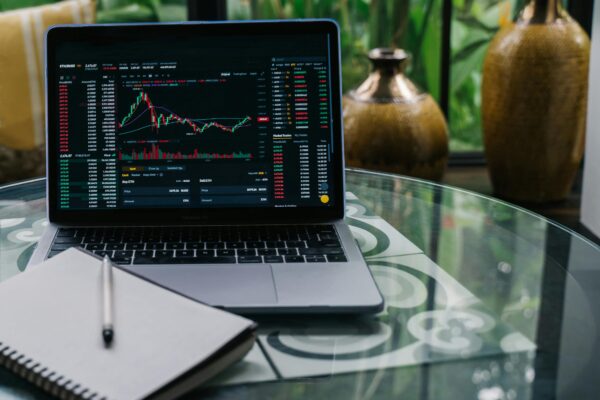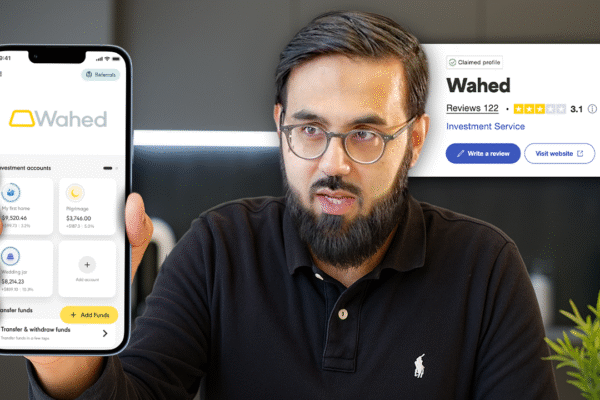
Is the S&P 500 Halal? A Guide for Muslim Investors
26 August 2025 7 min read

IW
IFG Staff Writers
7 min read
Last updated on:
What is Chainlink?
Chainlink is a decentralised oracle network that connects external data to blockchains. Blockchains that want to facilitate smart contracts and decentralized applications (DAPPs) require external data which Chainlink provides.
As a decentralised oracle network that simply connects data providers to blockchain projects, we believe Chainlink is halal. However, care needs to be taken to ensure that Chainlink doesn’t overwhelmingly become associated with haram activities. Read on for a much deeper dive into Chainlink itself and the Islamic views on it.
Also read: What is Bitcoin Cash (BCH)? Is it Halal?
Chainlink was launched in May 2019 on the Ethereum network. It is a decentralised oracle network that helps to unlock the potential of blockchain technology. An oracle in blockchain connects blockchains to the outside world by transferring data between them.
To understand Chainlink, you first need to understand smart contracts and the Oracle Problem.
Smart contracts are self-executing agreements that automatically execute certain actions once the predetermined conditions have been met. It can be summarised as an if-then protocol. If the conditions are met then an action is performed. Smart contracts form the basis of decentralised applications (DAPPs).
Smart contracts allow for transactions to be carried out without the need for a third-party authority, as the code will automatically execute. This could result in cost savings and increased transaction speeds.
For example, if you are a footballer, you could create a smart contract that automatically triggers bonuses for you when you score a goal or make an assist by connecting the contract to the official match statistics. This is where the Oracle Problem comes in.
For smart contracts to work, they need to be connected to external data. For example, let’s revisit the above example. For the contract to function, it needs to be connected to official football statistics to be updated on whether the football has made an assist or scored a goal.
The issue is that current blockchains don’t have a way to connect to external data. They can only work with data that exists on their current blockchain.
This is where blockchain oracles come in. They connect blockchains with external data unlocking the potential of smart contracts. The oracle is also responsible for assuring the validity and quality of the data.
A crucial component for many blockchains is their decentralised nature, As such, a blockchain oracle also needs to be decentralised. As if all the data is coming from one central point, then it would create a single point of failure and thus compromise the rest of the network.
This is what Chainlink does. It has a network of nodes that provide external data to smart contracts in exchange for its token, LINK, which is used to pay for its services.
Chainlink is an intermediary between blockchain networks (on-chain) and external data providers (off-chain). It has an on-chain and off-chain infrastructure that you need to be aware of.
The process starts when a smart contract requests data via a Requesting Contract. This triggers a Chainlink event which creates a corresponding smart contract. This contract is the Chainlink Service Level Agreement Contract which ultimately collects the off-chain data.
The contract has 3 sub-contracts that all play a role:
This is where the external data is collected from nodes that reside outside of the network. These nodes are responsible for collecting the data which is processed through Chainlink Core. This is the software that connects Chainlink to the off-chain data sources. This data is sent to the client and in exchange, the nodes receive a fee in LINK.
Chainlink unlocks all use cases of smart contracts by supplying them with the data needed to execute these contracts autonomously and securely.
Here are a few use cases that Chainlink helps to unlock:
Yes at the time of writing, over the past week there have been 78m feed updates processed by the Chainlink network.
When evaluating oracles, a useful metric to use is Total Value Secured (TVS). The TVS represents the total value locked within all protocols that are secured by an oracle. The TVS indicates how popular an oracle is.
Chainlink is the undisputed leader in the space, with its TVS of $14.8bn giving it a 54% of the total market. Its nearest competitor Maker only has a 28% market share.
Chainlink (LINK) is one of the most established cryptocurrencies and currently is the 21st largest cryptocurrency with a market capitalization of ~$6bn. LINK can be bought from most exchanges including Coinbase and Binance. It reached a peak of $52.88 in May 2021 and is currently trading around $6 at the time of writing, having lost a whopping 89% of its peak value.
Chainlink is by far and large the runaway leader in the oracle space. As the leading Oracle, Chainlink often forms part of a diversified portfolio for many crypto investors. If crypto does take off, Chainlink is finely poised to benefit with it playing a crucial role in unlocking the potential of smart contracts.
However, to date, the price action of Chainlink has disappointed many investors. One cited reason for this underperformance is the lack of incentives for node operators to hold their LINK tokens. Many of these operators simply cash in and out as LINK as required.
This may change with the arrival of Chainlink 2.0, which outlines the upcoming development of the Chainlink network. One such development is the introduction of staking. This could make holding LINK more attractive and thus be a catalyst for a positive price movement.
Ultimately, the success of Chainlink is contingent on smart contracts living up to the hype and delivering key value.
Whilst there are other oracle providers, Chainlink has cornered the market.
Band Protocol is another decentralised oracle that lives on the Cosmos network. BAND has several features that distinguishes itself slightly from Chainlink. It claims to be cheaper and quicker than Chainlink. However, it has failed to take off just yet, with its market cap of $130m dwarfed by Chainlink’s market cap of ~$6bn.
WINkLink is another decentralised oracle that lives in the TRON ecosystem. WIN has a market cap of just $100m. It has a TVS of $2.6bn which is substantially more than Band Protocol which has a TVS of $684m.
When it comes to cryptocurrency in general, our view is that investing in crypto is halal as long as the project itself is halal. We see cryptocurrency as a type of digital asset (with the potential for some to become fully-fledged currencies).
We don’t find there to be anything problematic from an Islamic perspective about blockchain technology, and cryptocurrency which is a use of blockchain and seeking to profit from it. For more on our approach to crypto, check out this article.
You want to avoid projects where:
As a decentralised oracle network with the primary aim of connecting data providers to blockchain projects, we believe Chainlink is halal.
If you follow the opinion that crypto isn’t permissible, then Chainlink by extension would also not be permissible.
Otherwise, one point to bear in mind from a sharia perspective is if one ecosystem becomes overwhelmingly linked with a haram industry then there may be an issue. However, right now it’s all too early to make such a judgement call.
In summary, Chainlink is the king of blockchain oracles. It aims to unlock the potential of smart contract platforms by connecting them with data providers. It achieves this in a decentralised way whilst also ensuring that the data is valid and of high quality. For this reason, many crypto investors allocate a portion of their portfolio to Chainlink. However, the Chainlink team needs to develop ways to make its LINK token more valuable for investors to earn a return.
We are satisfied that it is indeed a halal asset and thus permissible for Muslim investors to buy.

26 August 2025 7 min read

24 July 2025 15 min read

16 July 2025 5 min read
Leave a Reply